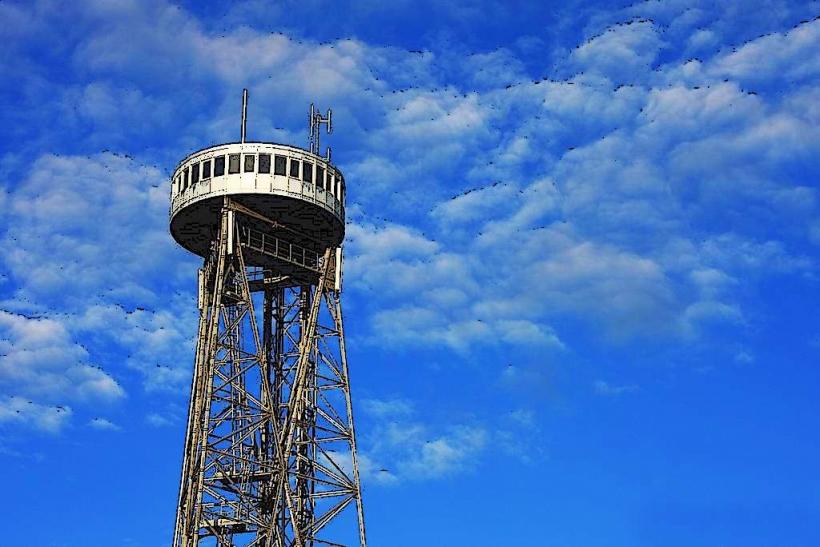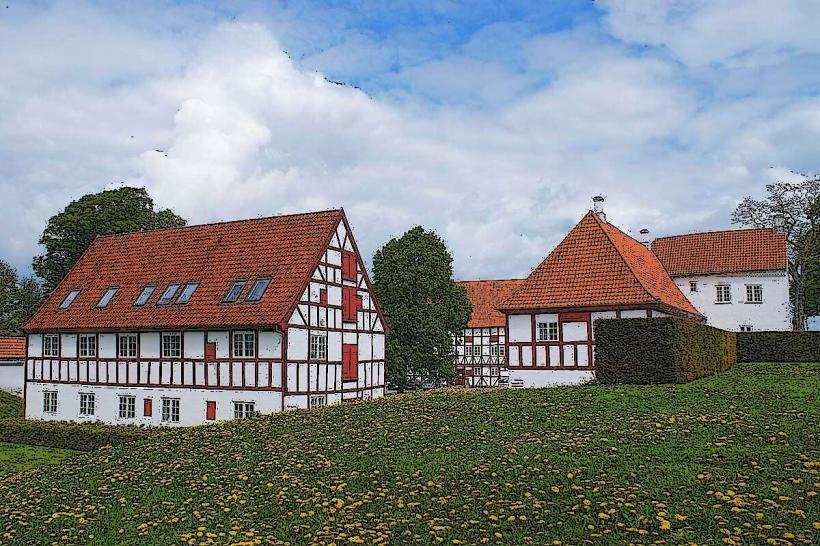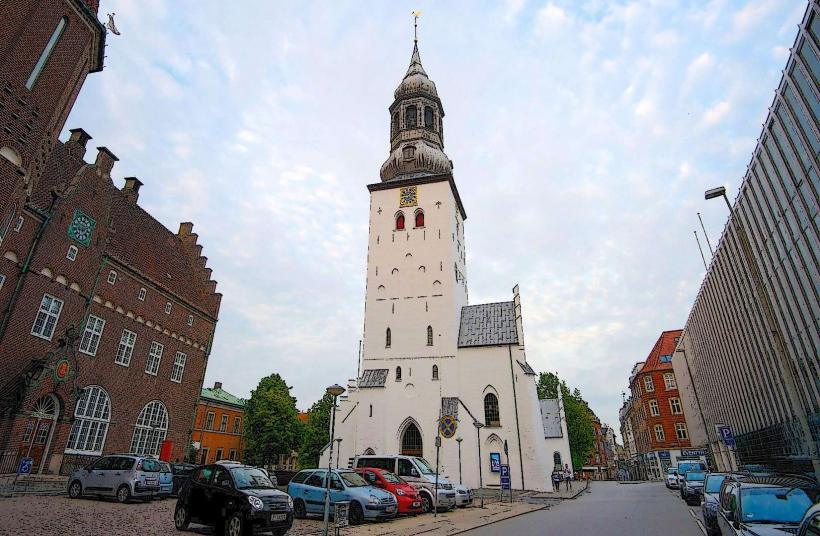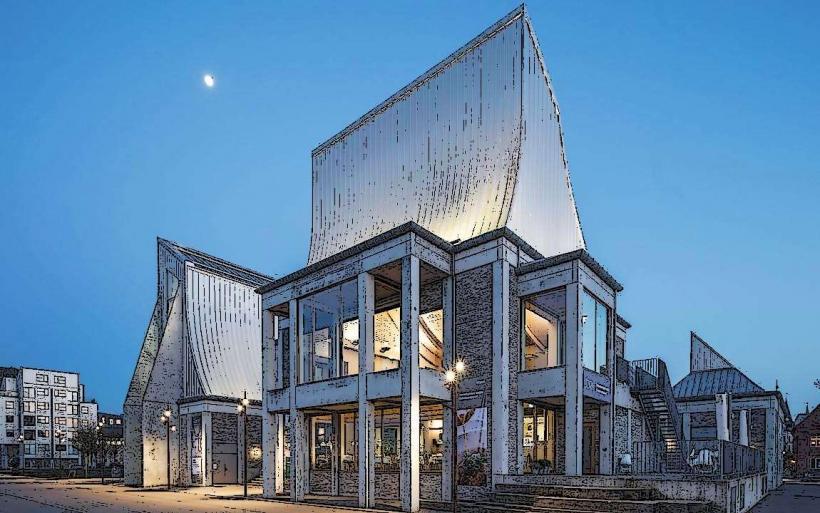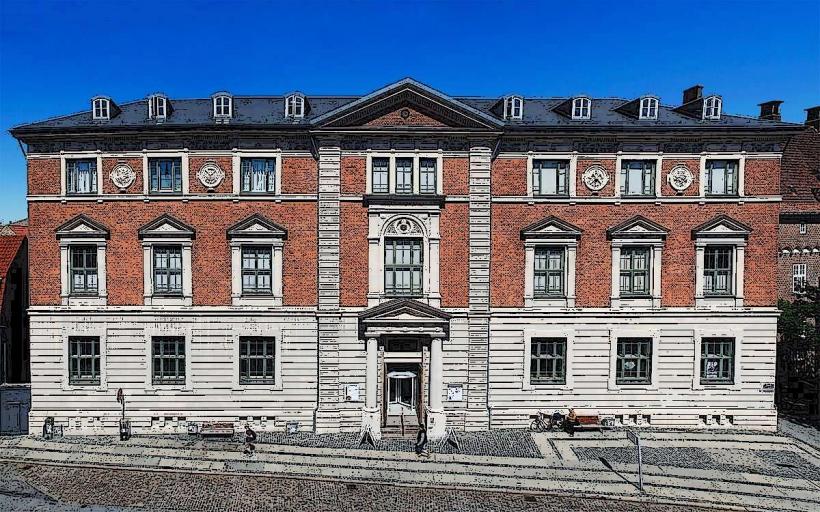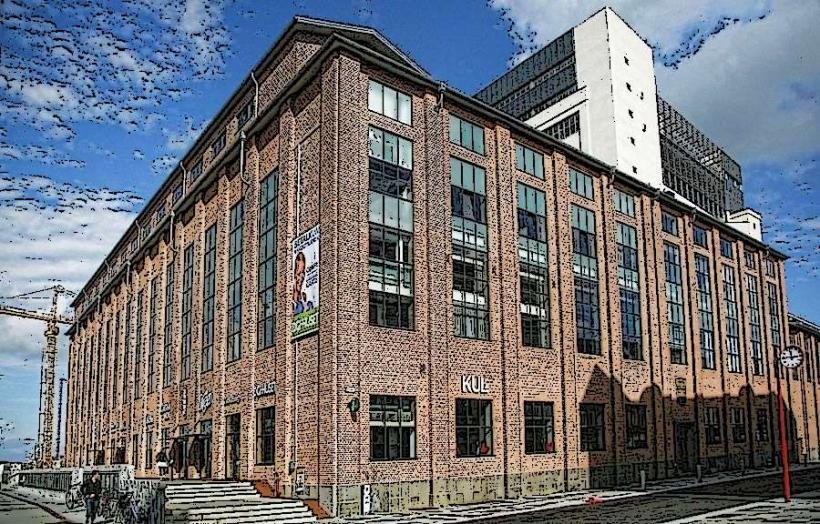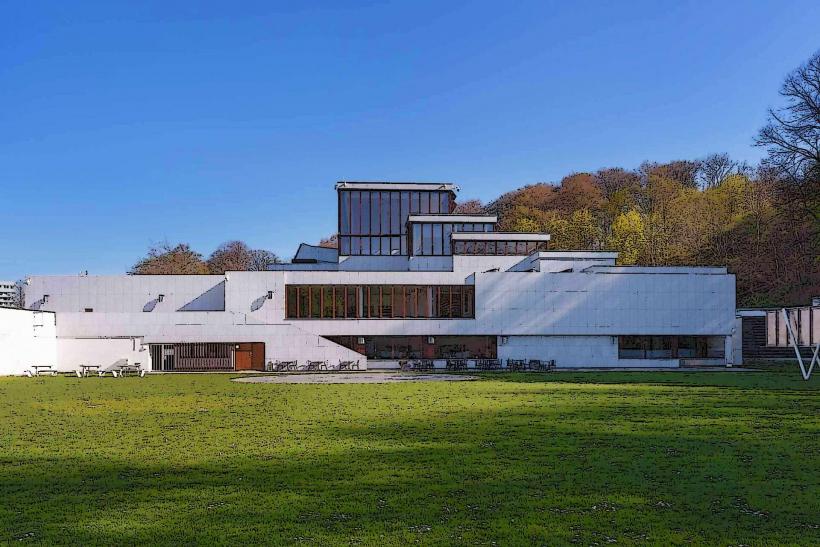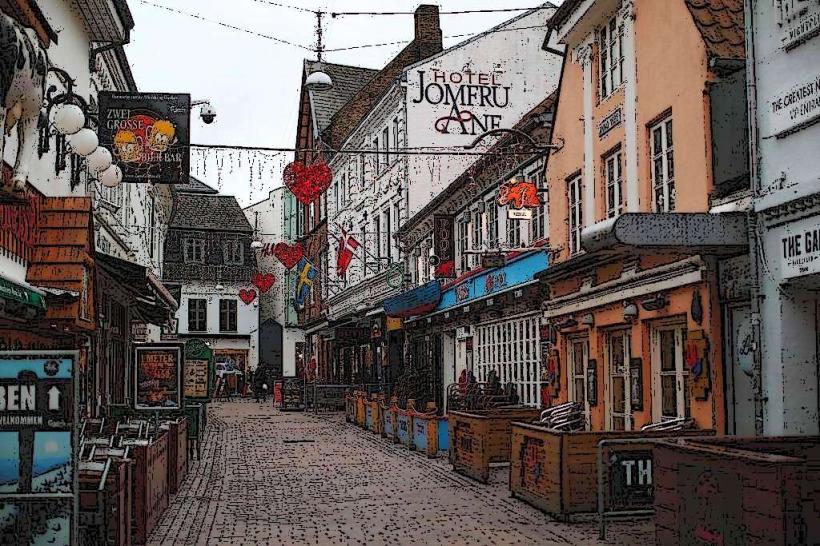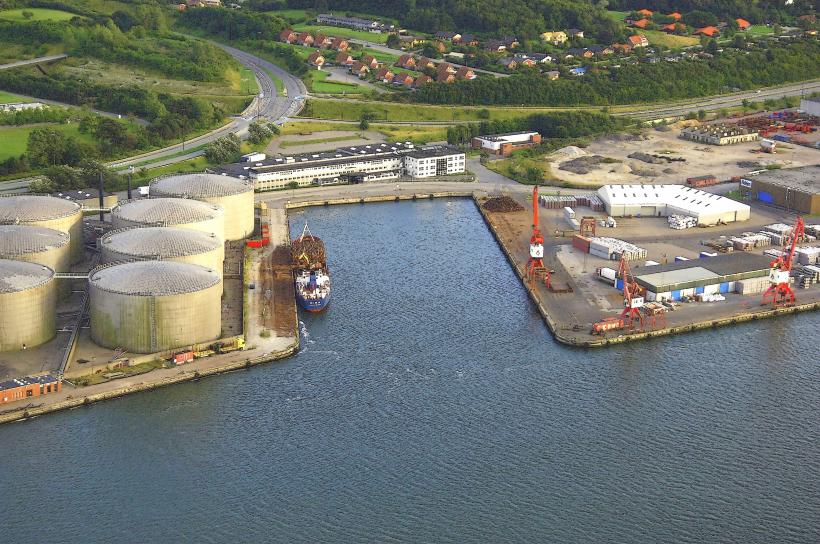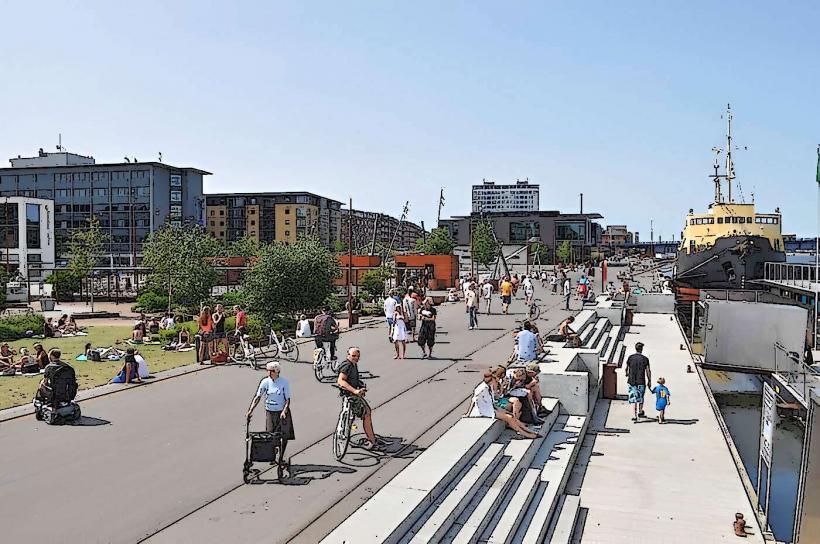Information
Landmark: Limfjord BridgeCity: Aalborg
Country: Denmark
Continent: Europe
Limfjord Bridge, Aalborg, Denmark, Europe
The Limfjord Bridge is a bascule bridge spanning the Limfjord, connecting the city of Aalborg with Nørresundby in northern Denmark. It serves as a critical transportation link for vehicular, bicycle, and pedestrian traffic.
Visual Characteristics
The bridge is a steel and concrete bascule structure, approximately 600 meters in length. Its primary color is grey, derived from the steel framework and concrete piers. The design is functionalist, featuring a central movable section that lifts to allow ship passage. It accommodates four lanes of road traffic, two dedicated bicycle paths, and two pedestrian sidewalks.
Location & Access Logistics
The Limfjord Bridge is centrally located, directly connecting Aalborg on the south bank with Nørresundby on the north bank. It forms part of Route 180. The bridge is integrated into the city center, with no specific distance from a central point as it is the central connection. Direct parking at the bridge is not available; however, public parking garages such as Salling P-hus and Kennedy Arkaden P-hus are located within 0.5 to 1 kilometer in central Aalborg. Numerous city bus lines, including Line 2, 12, 13, and 17, traverse the bridge, with bus stops situated at both ends.
Historical & Ecological Origin
Construction of the Limfjord Bridge commenced in 1930, and it was officially opened to traffic in 1933. The design was executed by the engineering department of the Danish State Railways (DSB). Its original purpose was to replace an older pontoon bridge and a railway bridge, providing a modern and efficient road connection across the Limfjord while maintaining navigability for maritime traffic.
Key Highlights & Activities
Pedestrian Crossing allows for direct views of the Limfjord and the waterfronts of Aalborg and Nørresundby. Cycling is facilitated by dedicated bicycle lanes. Observing the bascule section opening for passing ships is possible, with operations occurring on a scheduled or requested basis. The bridge offers vantage points for photography of the urban landscape and the fjord.
Infrastructure & Amenities
Public restrooms are not available directly on the bridge structure but can be found in establishments within the adjacent city centers. The bridge offers minimal natural shade due to its open design. Strong 4G and 5G cellular signal coverage is consistent across the entire span. There are no food vendors located on the bridge itself; however, a variety of cafes, restaurants, and shops are accessible within 200-500 meters at both bridgeheads.
Best Time to Visit
For optimal photography, early morning or late afternoon hours provide softer light conditions, enhancing the visual appeal of the bridge and its surroundings. The months of May through September offer the most favorable weather conditions for crossing the bridge. Tidal conditions do not affect bridge access for pedestrians or vehicles, but ship passage observations are dependent on vessel schedules.
Facts & Legends
The Limfjord Bridge was a pioneering engineering project in Denmark, being one of the first major road bridges in the country to incorporate a bascule mechanism for large ship passage. It operated as a toll bridge for vehicles until 1997.
Nearby Landmarks
- Aalborg Waterfront (Havnefronten): Adjacent, directly South
- Aalborg Castle (Aalborghus Slot): 0.3km South-East
- Jomfru Ane Gade: 0.4km South
- Utzon Center: 0.5km West
- Nordkraft: 0.7km East

